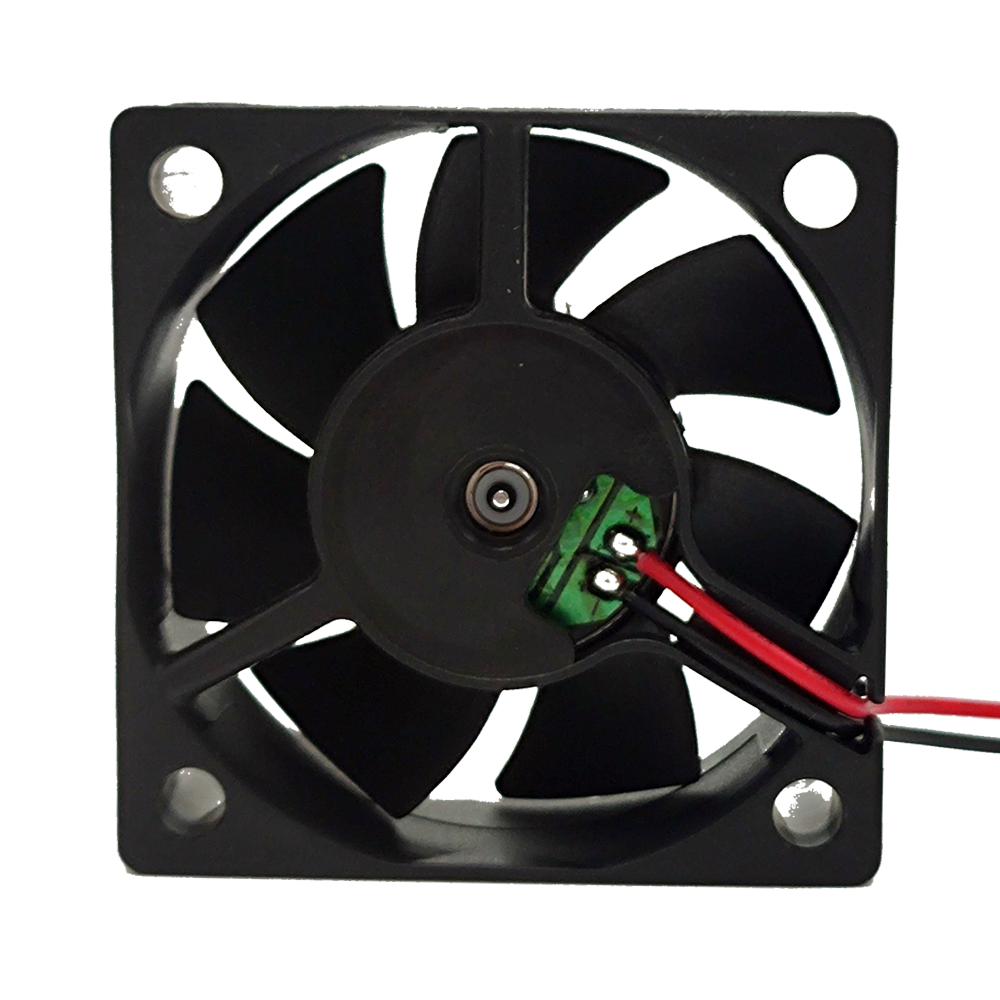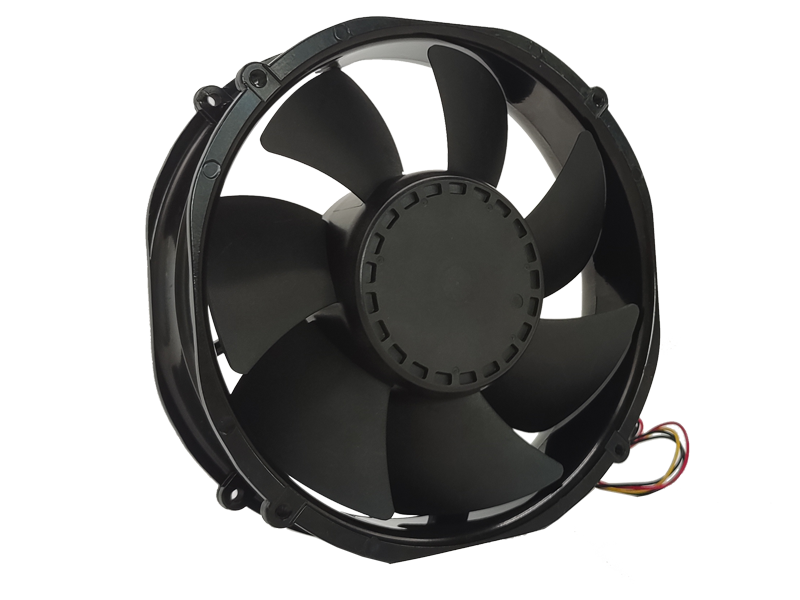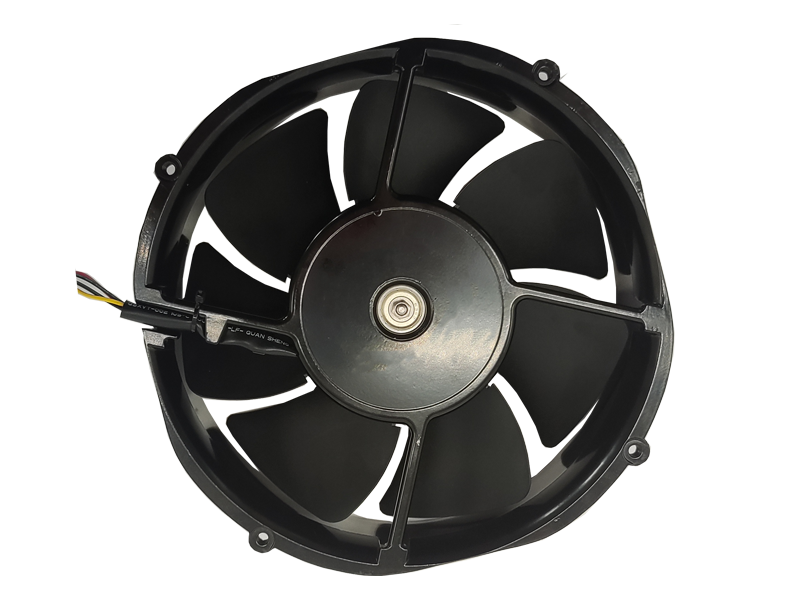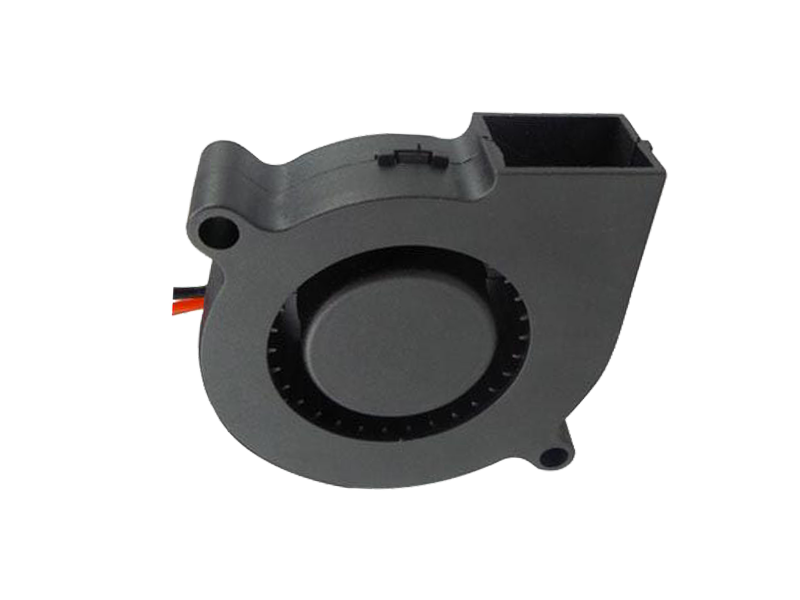Industrial environments are often characterized by large machinery, high heat generation, and a variety of airborne particles. As a result, maintaining adequate ventilation and airflow is essential not only for worker comfort and safety but also for protecting valuable equipment. Industrial fans play a key role in ensuring proper ventilation, reducing the risk of equipment overheating, and preventing dust and debris from accumulating. This article will explore the significance of industrial fans in preventing equipment damage, their benefits, and the various types of fans available for industrial use.
Why Industrial Fans Are Critical for Equipment Protection
In many industries, machinery and electronic equipment are crucial to daily operations. These machines generate a significant amount of heat, and without proper airflow, the temperature within the equipment can rise to unsafe levels. This overheating can lead to several issues, including reduced performance, increased wear and tear, and even total failure of equipment components. Industrial fans help to mitigate these risks by providing a steady flow of air that carries heat away from equipment and disperses it into the surrounding environment.
Preventing Overheating
Overheating is a common cause of equipment failure in industrial settings. Whether it's a production line, an HVAC system, or a data center, overheating can cause machinery to malfunction or shut down. Industrial fans are designed to maintain a constant airflow around equipment, preventing it from reaching critical temperatures. By dispersing heat effectively, fans ensure that machines can operate within their optimal temperature range, thus preventing damage.
Maintaining Optimal Working Conditions for Electronics
In industries that rely on sensitive electronics, such as data centers and telecommunications, temperature control is crucial. Electronic components can overheat quickly, which can lead to system failures, data loss, or costly downtime. Industrial fans equipped with temperature sensors and automated control systems can help regulate airflow to keep these systems cool. This proactive approach to cooling extends the lifespan of expensive equipment and improves the reliability of electronic systems.
Reducing Dust Accumulation
Dust buildup is a persistent issue in many industrial environments, particularly in factories, warehouses, and woodworking shops. Dust accumulation can cause equipment to overheat by blocking vents and cooling systems, and it can also contribute to fire hazards. Industrial fans help to reduce dust levels by circulating air and preventing particles from settling on machinery. In combination with dust collection systems, fans can significantly improve the cleanliness of the workplace and ensure equipment remains operational.
Benefits of Industrial Fans for Equipment Protection
Industrial fans offer several advantages when it comes to protecting equipment from damage. Below are some key benefits:
Improved Airflow and Cooling Efficiency
The primary benefit of industrial fans is their ability to improve airflow. By ensuring that air moves freely throughout the workspace, fans help prevent hot spots and maintain an even temperature distribution. This improves the cooling efficiency of machinery and reduces the likelihood of heat-related damage. Efficient airflow also reduces the reliance on air conditioning, lowering energy costs while providing effective cooling.
Enhanced Durability of Equipment
Regular exposure to high temperatures can accelerate the wear and tear of equipment, leading to frequent maintenance and replacement costs. Industrial fans help extend the lifespan of equipment by keeping components cool, reducing the stress placed on machinery and minimizing the risk of breakdowns. By maintaining an optimal operating temperature, fans contribute to the longevity and durability of valuable assets.
Lower Maintenance Costs
Proper airflow and cooling can significantly reduce the need for frequent repairs and replacements. When equipment is kept at the proper temperature, it operates more efficiently and is less likely to experience malfunctions. This leads to lower maintenance costs, fewer emergency repairs, and less downtime for industrial operations. The savings on repair costs can offset the initial investment in high-quality industrial fans.
Types of Industrial Fans for Equipment Protection
There are various types of industrial fans available, each suited for specific needs in protecting equipment. Understanding the different fan types can help businesses select the right solution for their operations.
Centrifugal Fans
Centrifugal fans are known for their ability to generate high pressures, making them ideal for applications that require focused airflow. They are commonly used in dust collection systems and air handling units, where airflow needs to be directed with precision to prevent heat buildup and dust accumulation around sensitive equipment.
Axial Fans
Axial fans are typically used for general ventilation and cooling applications. They are designed to move air along the axis of the fan blades, providing consistent airflow across large spaces. Axial fans are widely used in factories, warehouses, and other industrial settings where large-scale cooling is necessary to protect equipment from overheating.

High-Volume Low-Speed (HVLS) Fans
HVLS fans are large-diameter fans designed to move large volumes of air at low speeds. These fans are particularly effective in large, open spaces with high ceilings, such as warehouses or production facilities. HVLS fans can provide consistent air circulation over a broad area, ensuring that equipment remains cool and preventing heat buildup in machines located in the far corners of a facility.
Inline Fans
Inline fans are compact fans installed within ductwork, providing effective ventilation and cooling where space is limited. These fans are often used in industrial kitchens, HVAC systems, and data centers to improve airflow and regulate temperature around sensitive equipment.
Conclusion
Industrial fans are essential tools for protecting equipment in industrial environments. By maintaining proper airflow and temperature regulation, these fans help prevent overheating, reduce dust accumulation, and ensure that machinery operates at peak performance. The right fan selection, based on the size and requirements of the facility, can significantly extend the lifespan of valuable equipment and reduce maintenance costs. Whether it's a centrifugal fan for precise airflow or an HVLS fan for large-scale cooling, industrial fans play a vital role in safeguarding machinery and improving the overall efficiency of operations.
Recommended Products

The main purpose:Car charging station

The main purpose:Car charging station

The main purpose:Electronic refrigerators, water dispensers, direct drinking machines, inverter power supplies
Address:No. 4137, Longgang Avenue (Henggang Section), Henggang Community, Henggang Street, Longgang District, Shenzhen
hotline:13530005572(Chen)15112579390(Li)


Welcome all friends to come for consultation and negotiation.
Copyright 2024 @ Shenzhen Youneng Xinyuan Electronics Co., Ltd.,(industrial fans,industrial blowers,axial fans,cooling fans manufacturer,centrifugal fans,ac cooling fans,dc cooling fans)